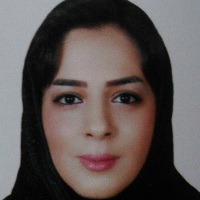Topographic surveys using Differential Global Positioning Systems (DGPS) with 2 and 3 frequency bandsin Pasargadae, Tol-eTakht
Topographic maps are source mapson whichdetails of geographical features and ground-based phenomena are displayed. To exhibit these phenomenaand visualize their geometric shapes, contour lines are used. In archaeology, topographic maps are used to exhibit not only relief, but also layout of ancient structures and remains, buildings, archaeological excavation trenches, layout of squares used for geophysical data collection and, in general, location and layout ofanyinformation necessary for different interdisciplinary studies, including the layout of electrical catheterization profiles, geological sectionslayout, and botanical pollen sampling locations. Topographic maps are also usedto systematically study ancient sites and hills and prepare a dispersion and distribution map of sherdsremaining from ancient potteries.However, the application of topographic surveys in archaeology is muchmore extensive than only preparation of topographic maps. With an engineering and technical perspective, surveyors only collect visible geographic features, whereas the smallest features on an ancient site can be a possible sign of architectural structure. Thus in general, all reliefs or ditches are important in an ancient site.
Pasargadae World Heritage Site, in which the first scientific research beganin 1928, contains monumentsstill hidden from all archaeologists’ sights. Since then, many maps have been preparedfor this site by Herzfeld, Sami, Stronach, Pasargadae Parse Research Foundation, etc.all of which were confined to the layout of existing buildings and hills. The first topographic surveys in an ancient site were carried out at the Pasargadae World Heritage Site by ajoint Iranian - French board in 2015. In the first season, surveys were performedusing Theodolite and Total Station Camera, but because of the limitations of these types of cameras, Differential Global Positioning Systems (DGPS) with 2 and 3 frequency bands andreal time correction possibility were usedin the second and third seasons of the surveys.Inductive research method was used in this research, and data was collectedbased on library research and field observations. First, a brief history of Pasargadae Tol-e Takht and the archaeological activities carried out on this site is provided. Then, discussing GPS and topographic maps, related advanced equipment is introduced. Afterwards, topographic surveys in this historical site are discussed.
As mentioned before, anarchaeologically-minded surveyor looks at hills or ancient sitesfrom a regional perspective. In addition to ancient hills, surveyors collect information about all natural and artificial geographical features in the environment, including agricultural lands, water resources, geological structures, region’s erosive dynamics such as gullies, and dispersion of all rubbles, megaliths and slate rock.For example, the presence of several stones in close proximity is usually not very important to surveyors, but can be a sign of an architectural structure or a grave structure for an archaeologist.In topographic surveys, we simultaneously carry out mapping and archaeological activities; we are archaeologists carrying out a systematic archaeological survey on the site, and producing map of the area. An archaeologically-minded surveyor, moves around a site, pays attention to the remains of walls and architectural structures, remains of graves and ancient fireplaces, outcrop of large slate rock in ancient hills, remains of canals built in the site at the present or in the past, areas in which there is an aggregation of pottery and stone pieces, and in general, the smallest slopes and features, and collect these points using GPS.In fact, techniques of topographic survey help archaeologist toproduce accurate maps and discover hidden elements that are notusually noticed in mapping.
Results indicate that with the help of the topographic survey team and advanced technologies,some structures were identified in the Pasargadae World Heritage Site that had been hidden from archeologists to this day, despitethe long history of the presence of reputable and world renowned archaeologists in this site.In fact, one of the main questions of archaeologists was related to empty spaces among the structures in Pasargadae site. Topographic surveys of the area have led to the discovery of new walls and architectural structures on the southern and northern slopes of Tol-e Takht. In addition, the discovery of some regular buildings behind Tol-e Takht, the new rampart and several graves around Tol-e Takht and scattered walls on the hill opposite Solomon’s Prison and inside the site, are also results of topographic surveys at Pasargadae. Also, with the help of these surveys, two areas used forhuman settlementwere identified at Pasargadae site.
-
Recital the role of women as hunters in foraging societies with the help of ethnographic research and archaeological findings
*
Journal of Archeology of Iran,


